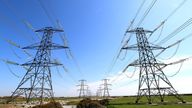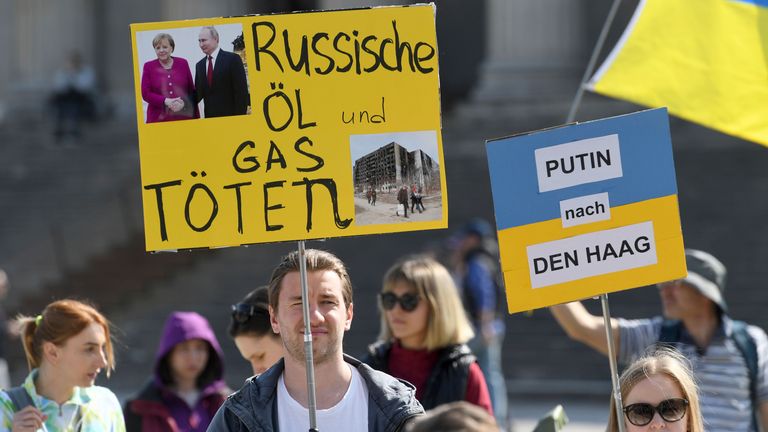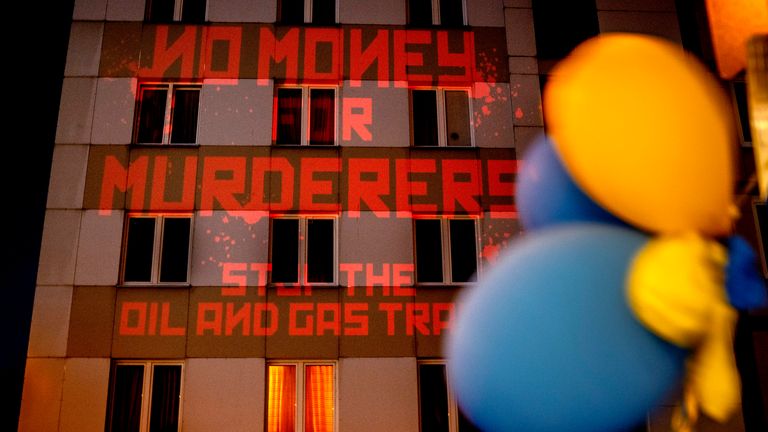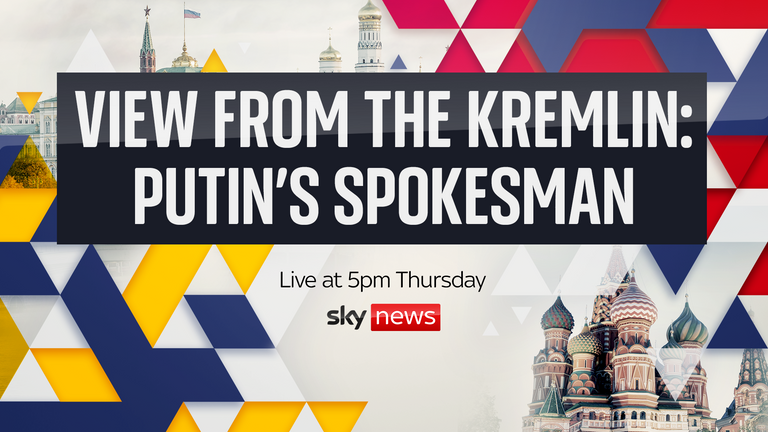Oil and gas sanctions could be EU’s biggest lever against Russia – but it would come at a cost
The package of sanctions unveiled by the EU against Russia – its fifth since the invasion of Ukraine – looks dramatic at face value.
The EU buys 84 million tonnes of coal each year from Russia, the world’s third largest coal exporter after Indonesia and Australia, representing around 32% of its output. So a ban on Russian coal will hurt the Kremlin. Ursula von der Leyen, the European Commission president, suggested it will deprive Russia of some €4bn (£3.3bn) worth of revenues annually.
The 27-country bloc is also banning the import of Russian goods, including wood, cement, seafood, and liquor, which it estimates will deprive Russia of a further €5.5bn (£4.6bn) annually.
Further measures include a full transaction ban on four key Russian banks, including the country’s second-largest lender VTB, along with banning Russian vessels from entering UK ports and a ban on Russian and Belarusian truck operators.
The EU has additionally slapped bans on exports of some €10bn (£8.3bn) worth of goods, including semiconductors and electrical equipment, to Russia.
In total, it is a big package, but it is impossible to avoid the feeling that the EU is beginning to run up against the limits of the pressure it can bring to bear on the Russian economy.
One figure sums that up: €5.7bn (£4.7bn). That is the value of gas that just one EU country – Germany – bought from Russia in January alone. Nearly €184m (£153m) every day.
Germany’s dependence on Russia for its gas – 40% of its consumption – is why it has been impossible to secure EU-wide agreement on banning Russian gas – even though it would be the biggest lever by far that the EU can pull.
Germany is now scrambling to line up alternative energy sources but the fact is that, if it cut off Russian gas immediately, it would probably be condemning itself to a recession. The EU’s biggest economy going into recession would undoubtedly drag down other countries with it.
Other EU leaders believe that is a price that the bloc should be prepared to pay if it hastens the end of Vladimir Putin’s war on Ukraine.
As Gabrielius Landsbergis, the foreign minister of Lithuania – the first EU country to stop all Russian gas imports – put it: “Buying Russian oil and gas is financing war crimes. Dear EU friends, pull the plug. Don’t be an accomplice.”
Germany is by no means alone in opposing a ban on Russian gas. Austria, which is just as dependent on Russia, would also be opposed. So too would Hungary which, reportedly, is preparing to comply with Mr Putin’s demand that Russia be paid in roubles for its gas.
Ironically, the import ban on Russian coal is likely to raise demand from Germany and some other EU countries for more Russian gas. This is because big buyers of Russian coal, most notably Germany (which relies on hard coal for 9.3% of its energy), the Netherlands (which relies on hard coal for 11% of its energy), and Poland (which relies on hard coal for 47% of its energy), would struggle to obtain coal from elsewhere – a consequence of producers like Indonesia and South Africa exporting more to China following the latter’s embargo on Australian products.
Nor would America be able to provide more coal, as it has offered to do with liquefied natural gas, as most US coal output has already been sold under long-term contracts and because the country is in any case winding down coal mining.
So that would force these countries to reach for alternatives and, in the case of Germany and the Netherlands, that is likely to be natural gas. Poland, which is further down the road in terms of weaning itself off Russian energy, might be in a better position and in any case has vowed to stop buying Russian gas by the end of the year.
Potentially more attainable, though, might be a ban on Russian oil imports. This is something for which Emmanuel Macron, the French president, has been pushing.
Read more from Ian King:
The West is chipping away at Russia’s ability to finance its violent campaign
Putin is playing chicken with the West over gas sales – and the stakes are high for both sides
The EU buys some 2.3 million barrels of oil and refinished products daily from Russia, which accounts for 49% of the bloc’s oil imports, so again this would not be without pain.
But it does feel as if the option is – unlike a gas ban – under active discussion.
As Ms von der Leyen told the European Parliament on Tuesday: “Now we have to look into oil and revenues Russia gets from fossil fuels.”
Ultimately, though, the biggest stick that the EU can wield against the Kremlin is to stop buying its gas.
That is going to be extremely painful for Germany in particular – and is likely to cause tensions between EU members.
Charles Michel, head of the Council of Europe, said today: “We are ready to move quickly with further coordinated robust sanctions. I think that measures on oil and even gas will also be needed sooner or later.”
The debate, then, appears to be coming.





